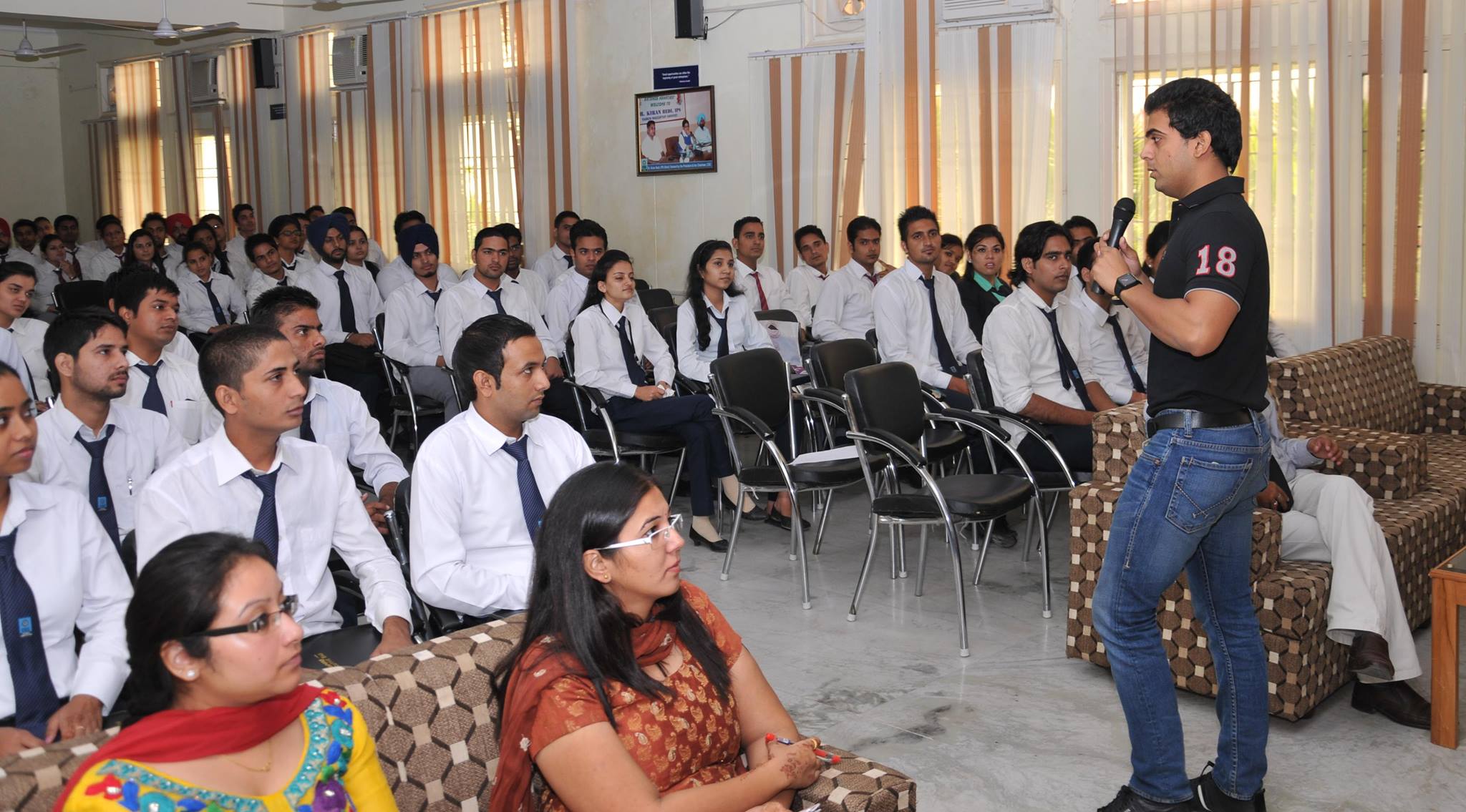Anxious About Jobs During COVID-19? 3 Successful IITians Offer Some Great Advice
"In my eyes, the world was functioning fine without me and no one cared about my pedigree or past credentials," says Shrikant Singh, a 2009 IIT-Kharagpur grad, who struggled to get a job because of the global recession despite performing exceptionally well in academics.

In 2009, Shrikant Singh graduated from IIT-Kharagpur after completing his five-year integrated Master of Science (MSc) course in Industrial Chemistry. However, by any measure, this was a bad time to enter the job market, as the global recession was hitting its peak.
Shrikant felt the consequences rather sharply. His job offer from campus had been rescinded, and the future looked uncertain.
What Shrikant felt at that moment was fear and anger. He had done everything that was expected out of him. Studying hard, he finished second in his class and had several prestigious international scholarships adorning his resume.
“I had excelled at IIT Kharagpur and was one of those arrogant idiots who thought that they were entitled to great things in life. I had three international internships from IIT, which included a paper in carbon nanotechnology from MIT, USA,” says Shrikant, in an email interview with The Better India.
Desperate, he booked a one-way ticket to Bengaluru with the hope of cracking at least one walk-in-interview and moved in temporarily with some generous seniors from college.
“After two months and multiple rejections, I finally secured a contractual position with General Electric (GE) for a stipend of INR 10,000 per month. I bought a second-hand bicycle for Rs 500 for my daily commute and shifted into a 3-BHK apartment with eight other guys,” he writes in a Facebook post that has now gone viral.
Barely six months into the job, however, GE didn’t renew his contract.
“In my fourth month at GE, my manager told me that they would not be extending my contract and I would be let go. He had even reached out to all his connections in other companies, but no one was in a position to hire. Then, a couple of my college friends mentioned to me that Analytics was the next big thing in the market, and there was a growing demand for analytics professionals in the industry. Mu Sigma was an upcoming player in this sector, and they were conducting regular walk-in drives during that period. I had no idea what analytics was, but I was running out of choices. Thankfully, their selection process revolved around mathematics and puzzles, and I was selected as a Business Analyst for their Bengaluru office. The pay was abysmal (Rs 22,500 per month), but I took it,” he says in the email interview.
He also had to contend with expectations at home. With his father in government service and mother working as a school teacher, they were neither privy to the workings of the corporate world, nor did they understand the global recession and its real-life impact.
“Naturally, they were confused when I told them that I had lost my campus offer from IIT, and I was graduating jobless. I knew they were hurt, so I decided not to tell them too much about my daily struggles. I also didn’t keep in touch with my IIT friends. Some had done just fine, and I was embarrassed to let them know about my situation,” he recalls.
Fortunately, Shrikant found support from his then-girlfriend, who he would go on to marry in 2012. Working at an IT firm, she took care of most of their expenses and kept his morale up in difficult times.
Shrikant joined Mu Sigma in November 2009 and worked there for 3.5 years before moving to the Indian School of Business for his MBA. Following that, he joined Amazon India in 2014, a year after the global retail giant had launched their operations in India.
“It was a perfect fit, and I have been here ever since,” he says.
Why is this story relevant today?
The economic fallout of the Coronavirus epidemic could be very similar to what we saw during the global recession in 2008 and 2009. Companies are already withdrawing job offers, letting go of salaried staff and implementing a freeze on any hiring. For those entering the job market, this is a very uncertain time filled with anxiety.
So, how can those looking to enter the job market deal with this situation?
The first step is to acknowledge the circumstances before you.
“Firstly, remember that this is not your fault. Some things are beyond your control. Unlike in an exam or other situations in college where your performance is the result of your effort and ability, in real life, macroeconomic conditions can affect you. I graduated from IIT-Madras in 2010, right around when the global financial crisis was coming to an end. A year before placements, everything seemed unclear, and we weren’t sure if we would find a job. However, 10 years out, I realize that campus placements were just a small part of my journey and that of my batchmates,” says Kaushik Anand, a partner at A91 Partners, a Mumbai-based venture capital firm.
He goes on to add that this is the time to think deeper.
“Many of us sat for placements or applied to universities because everyone else did. This may be a good time for you to step back, think about what you would want to do, focus your efforts on one specific kind of role and prepare for it,” he says.
Manage Expectations
For Shrikant, the stint at GE was a humbling experience. Motivating himself to wake up every day and cycle to work was hard knowing that his future remained uncertain irrespective of the effort. It was a real turning point in his life.
“I stopped judging people for who they were. In my eyes, the world was functioning fine without me, and no one cared about my pedigree or past credentials. Letting go of that ego was my biggest learning. I became much more open-minded than before. I also learnt that nothing was to be taken from granted. The past doesn’t guarantee the future. You need to live in the present to plan for the future,” he says.
Naturally, the next step here is to manage your expectations. Yes, we all know about that senior who earned their dream job and a massive pay package. “Understand that they are an outlier, and you will do well to ignore him. Also, remember that your college placement salary is not the last of your life. It’s just the beginning,” adds Shrikant.
It’s not as if those looking to enter the job markets should have no expectations at all. The idea is to reset them and not expect a job search to be similar to what it was a year ago.
“Be prepared for fewer choices and lower salaries. Also, expect and prepare yourself mentally for retrenchment of offers. Don’t fall into a false sense of security simply because you have an offer in hand. There are multiple options if you don’t find a job on campus. One option, especially for undergrads, is to apply for higher studies and push the search out by a few years while building some expertise. If this was an option you were open to earlier, it is worth considering now,” says Kaushik.
Another option is getting recruited off-campus, especially to younger companies and startups which may not come on campus. While Kaushik suggests that this process could be more time consuming and disorganized, it can occasionally throw up unique opportunities.
“This would also force you to sell yourself and your skills, unlike in campus placements. You would need to hustle your way to an interview or an eventual job,” he adds.
Meanwhile, according to Deepit Purkayastha (IIT-Kharagpur alumnus), co-founder and Chief Strategy Officer of Inshorts Medialabs, those sitting for job placements honestly need to assess their financial situation before embarking on a job hunt.
“Do they actually need a job right now, start earning, and how much do they need to earn? If the financial pressure to get a job isn’t much, this is the right time to acquire some new skills. There are so many online courses available,” he says.
Also, some companies and sectors will do well even in these times. Deepit cites the example of InShorts, which has witnessed multifold growth in terms of the number of users on their platform during this period.
“We have been able to sustain growth, grow much faster and are continuing to hire people for vacant positions. There is no hiring slowdown for us. Thus, prospective job seekers need to assess which companies can offer opportunities that are either growing or sustaining themselves well during this period,” he adds.
Prospective job seekers also have to read up and understand the job market landscape and the changes within a lot more smartly. If they need some money in their pocket, they can also go for low-paid internships, suggests Deepit.
“This gives prospective employers the necessary financial legroom to hire them on a say three-month internship on Rs 15,000-Rs 20,000 per month, as compared to a full-time job offer which would be Rs 70,000-80,000 per month. Salary and tenure cuts make it easier for the employer to continue onboarding the person. The idea here is to solve your needs for the next few months and then look ahead for the coming year or two. I have seen many people gain real expertise working five to six-month internships after graduation,” he says.
Lastly, downturns are a great time for entrepreneurs—some of the well known global brands today like Uber and Airbnb were launched in the last recession. Starting at this time makes it easier to recruit talent and build a company with lesser competition. It would, of course, require those engaged in the process to be convinced about their idea and a willingness to dedicate 10 years to it, suggests Kaushik.
Learn New Skills
With the world rapidly changing, it becomes imperative to identify new trends and adapt. The world was already heading into a digital age and the current pandemic will accelerate that movement. Across retail, education, entertainment or healthcare sectors, the future is online.
Shrikant asserts that it doesn’t matter whether your college’s curriculum covered the technical skills to survive in this internet savvy world. There is enough material on Google plus hundreds of accreditation courses online that can help you.
“Many fresh graduates are not job-ready yet, so the additional time can help them pick up technical skills (e.g. digital marketing) and also soft skills (e.g. how to write cold emails). These could help open up new job opportunities and in making them more job-ready when you start,” says Kaushik.
But what if the person is desperate for a job and a source of income? During placement season, there is a tendency to think of it as a make or break event or day similar to an entrance exam. That is far from the truth.
“Don’t overanalyse profiles of previous candidates and try to match patters. Also, do not prioritize CTC or salary. Prioritise jobs which can offer you the steepest learning curve in the initial years and can help you scale in a non-linear manner. Remember that the lifetime value a job generates, is more important than the starting salary. Talk to people you know who’ve worked at companies you’re considering to help you understand work culture, prospects for growth and other qualitative factors before making a decision. It is also not a good idea to compare job offers given that your interest and trajectory will change even compared to your closest friends in your class,” says Kaushik.
Nonetheless, companies, particularly large ones, must honour the commitments they have made to hire people sitting for job placements on college campuses. If companies honour the commitment they’ve made to hire a certain candidate, it is a massive step for first-time entrants into the job market and those who have left their previous job for a new one, argues Deepit.
Admittedly, these are anxious times for job seekers, particularly for first-time entrants into the market. But not getting a job isn’t the end of the world. In moments of crisis, there lie many opportunities. Many won’t get their dream jobs or big pay packets straight out of the gate, but given time, they can reinvent themselves and set themselves for a better long term future.
Also Read: Mumbai Mum Turns Beverage Cartons Into School Desks, Recycles 750 Tons of Waste/Year!
(Edited by Gayatri Mishra)
Like this story? Or have something to share? Write to us: [email protected], or connect with us on Facebook and Twitter.
This story made me
- 97
- 121
- 89
- 167
Tell Us More
We bring stories straight from the heart of India, to inspire millions and create a wave of impact. Our positive movement is growing bigger everyday, and we would love for you to join it.
Please contribute whatever you can, every little penny helps our team in bringing you more stories that support dreams and spread hope.



















